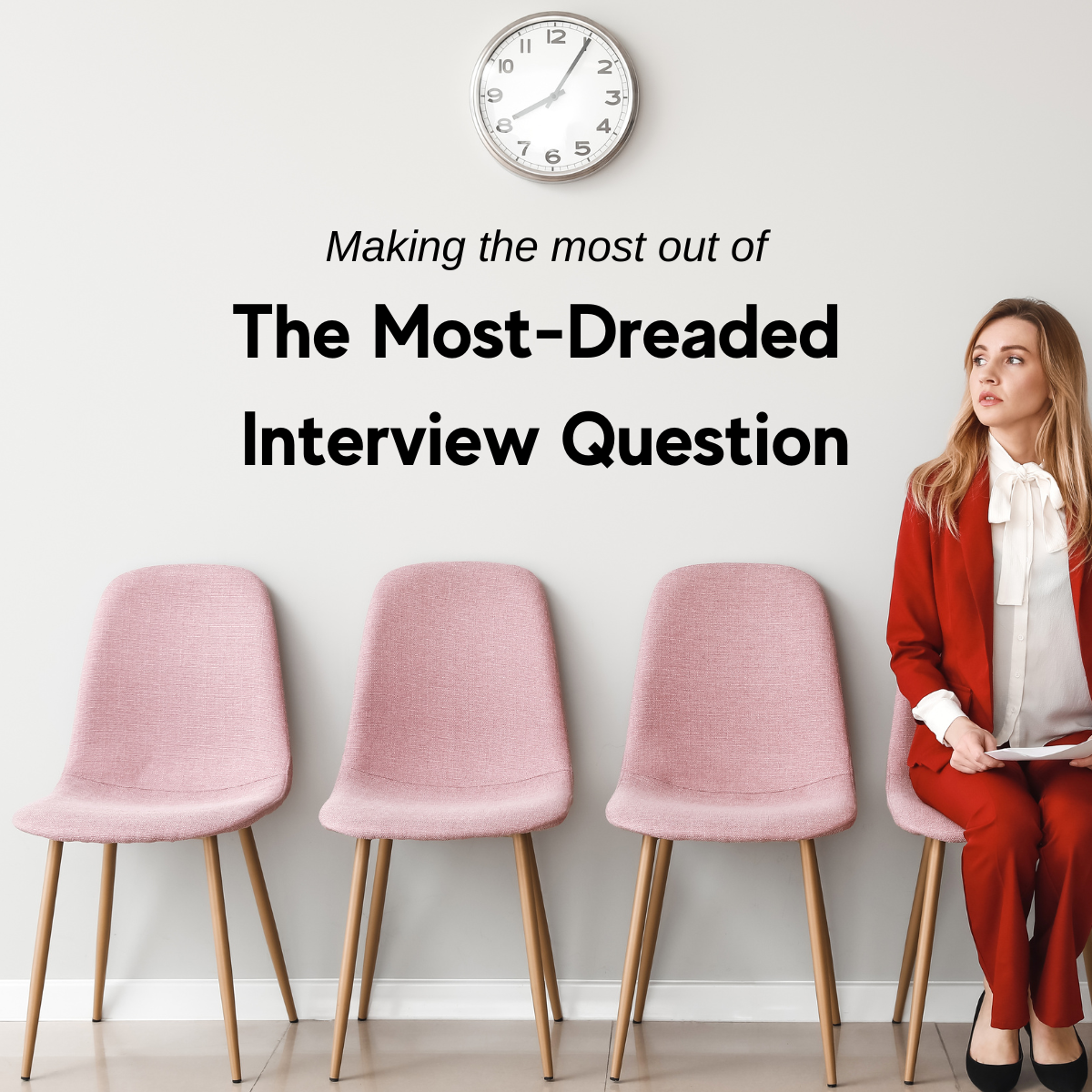We all have likely seen the (old and no longer recommended) advice to use one of your strengths as a weakness in a job interview.
The classic example goes –
Interviewer: “What do you think is your greatest weakness?”
Interviewee: “I’d probably say my perfectionism – it has been an occasional hindrance to my productivity, and I’ve had to learn to let most projects go when they are 99%, and not to spend so much extra time bringing the project to 100%.”
This approach is overdone and, at minimum, hints at a lack of authenticity. The interviewer may even be concerned about your capacity to reflect and adjust. This could be a huge red flag when so many roles require adaptability!
BUT, the converse, you may find incredibly helpful.
Consider your greatest weaknesses as if they were your greatest strengths.
Some of us may not be fully aware of our worst weaknesses, but for others, these perceived flaws might really be hindering our growth.
I challenge you to rebrand yourself like you’re in marketing.
Because, some of our weaknesses we may have reasonable success in changing, but others tend to be somewhat fixed – and try as we might we may be unable to mitigate them fully.
So try to start looking at your “weaknesses” as strengths.
Consider: how do your “weaknesses” actually make you different from someone else, and where would that trait be extremely helpful and set you apart from your peers?
A personal example may be helpful here.
I have had a great deal of success moving the needle on motivation, but I’ve had considerably less success in the realm of openness. While I’ve certainly been able to consider best practices, and ensure clarity, empathy and compliance while speaking, I still seem to have an inherent need to (over)communicate. I also have a great love for people, which can be a strength, it has also proved to be a weakness when I’ve been too willing to accept the “care tax” in past careers.
So in what careers might openness be a desirable trait – and so much so that it would set me apart, and even above, my coworkers and peers?
A broad category was easy enough to nail down. Communications. But, in what capacity?
There are several communications careers where a degree of openness could be valuable, and politics and public affairs instantly come to mind. Marketing and public relations were top contenders as well. I may now add in some of my personal strengths and consider a rewarding career in compliance, requirements, or contracts. An easy open nature tends to lower barriers, which can help negotiators suss out root concerns and come to mutually beneficial ends.
Now having identified several careers in this broad category, I can consider my next move – and so can you.
If you are already in one of those jobs, how can you make moves that will ultimately propel you to your end goals? If you are not in the career field you want to be in, how can you gain the experience necessary to pivot? Can you expand your duties to use that experience when applying for another job? Can you create your own experience or showcase your skills with social profiles, websites or blogs? Can you conduct informational interviews or have coffee dates with friends in the industry to both broadcast your interest and find out what it’s really like to work in that field?
What can you do right now, from where you’re at, to ultimately end at your dream job?
This weakness exercise is excellent to consider, not only because of those dreaded interview questions – but also because of what it forces you to consider about yourself and the value you bring to table.
So, consider those weaknesses that make you cringe. The ones that you hope no one notices or finds out about, and especially those that have been hard to fully overcome. It tends to be in these “weaknesses” where your strengths lie.




